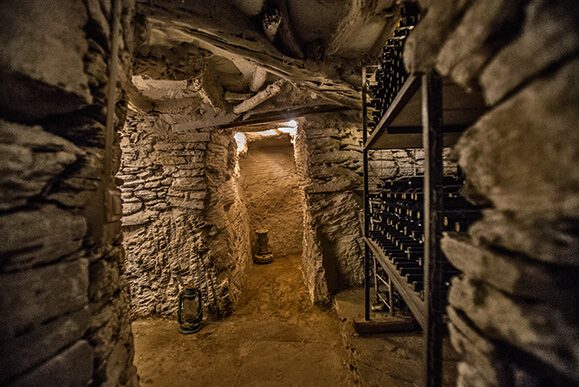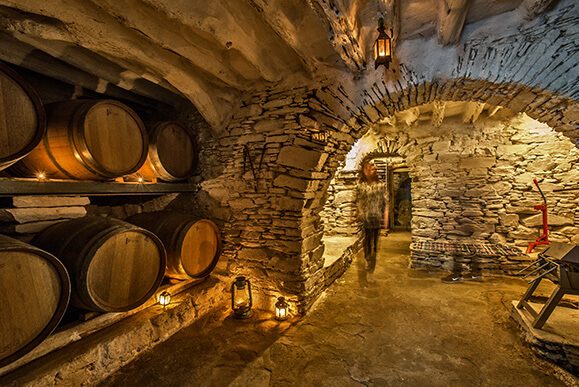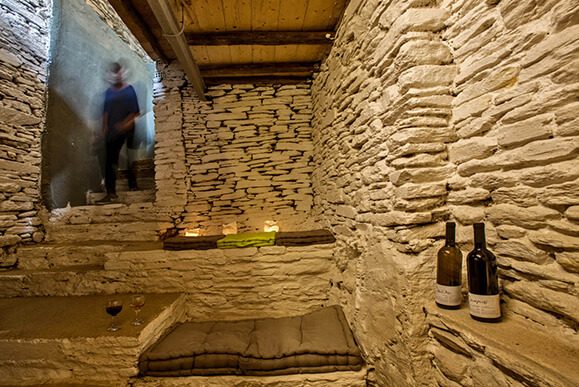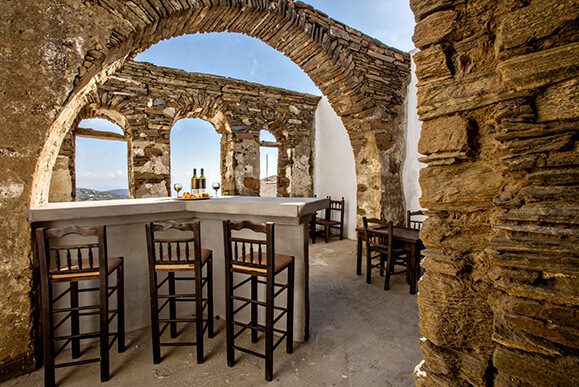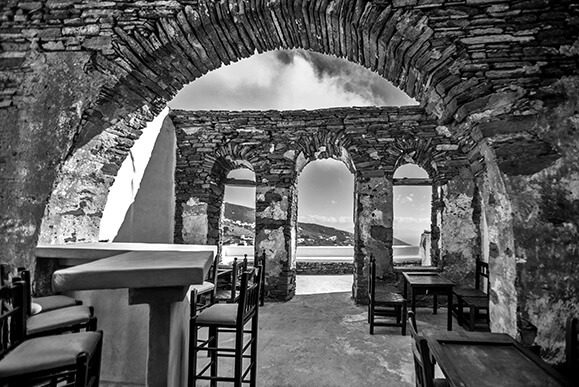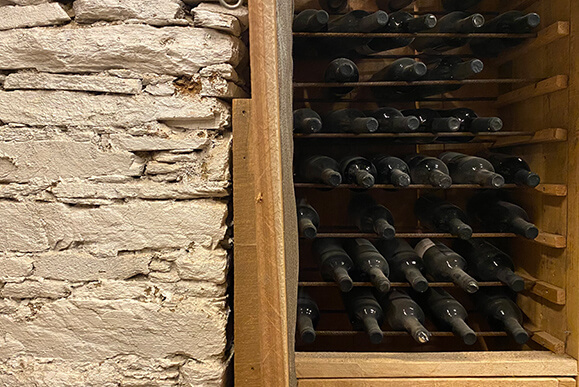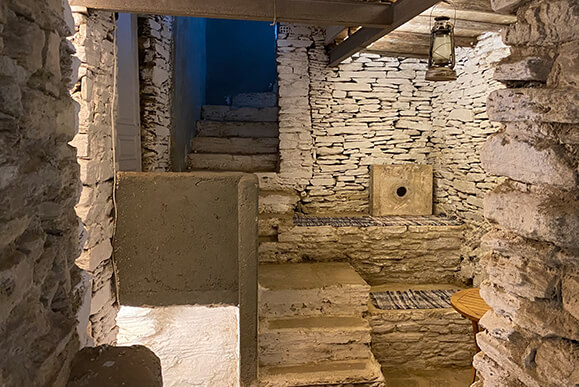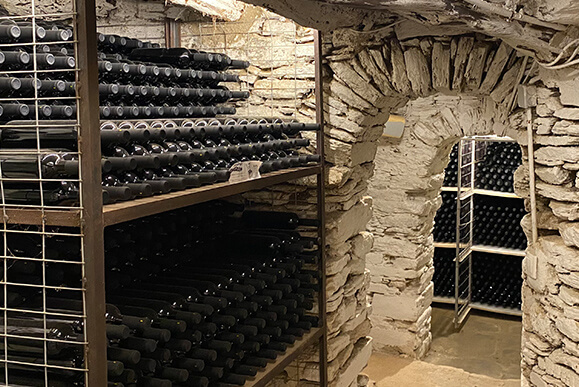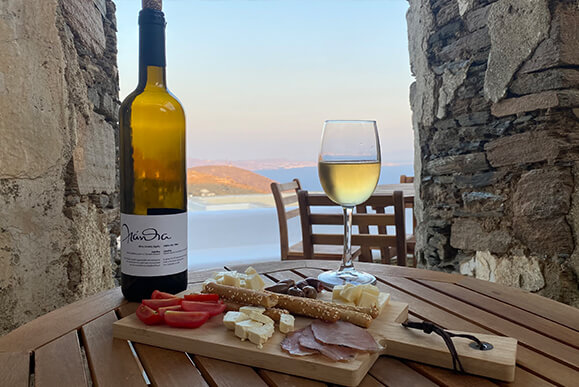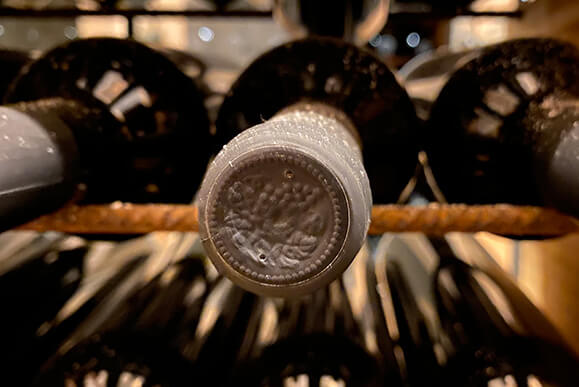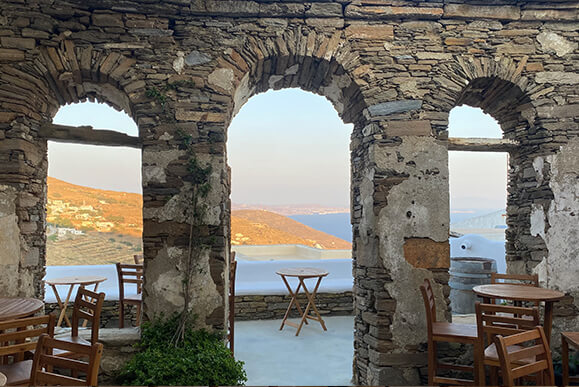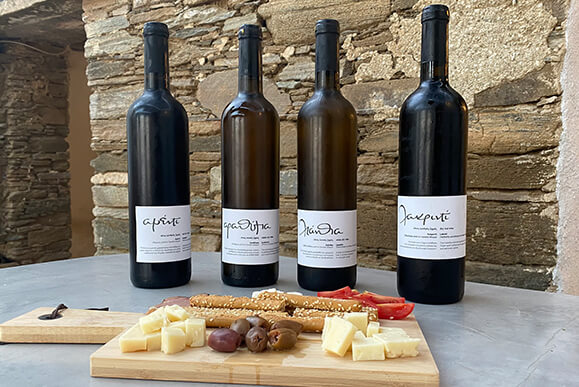
BALLIS BOUTIQUE WINERY
Cellar, Wine Tasting, Tinos Wine Arnados, 84200 Tinos
BALLIS WINERY – WINE TASTING EXPERIENCE
With a lot of love and passion we managed to relive in our village authentic Tinian flavors and aromas through an emblematic space taken from the tradition of our island. It is a visiting cellar dated back to 1350 AD. The cellar where the winery is located is of unique beauty, with labyrinthine corridors and small rooms to dominate, while part of the cellar is also an atrium with a unique view to Tinos Chora, as well as islands such as Syros, Delos and Paros. Visitors have the opportunity to tour the cellar, learn about its history, winemaking as well as taste our labels from Tinos varieties and enjoy the outside area of our winery used as a wine bar.
Daily, 12:00 – 19:00, visitors can take a guided tour of the winery, carry out a wine tasting of the winery’s labels and choose one of four varieties of traditional products to be enjoyed afterwards, along with the glass of wine of their choice , at a particularly affordable cost (Total cost: 20 Euros / person, Duration: 1h). Anyone who wishes can of course purchase a bottle of wine of their choice.
Later, from 20:00 until midnight, the space turns into a special wine bar that offers, in addition to the unique view, the wines produced by the winery, bottled local tsipouro and two wine-based cocktails as well as selected Jazz-based music . Live performances of Jazz, Folk, Greek and foreign styles are often organized.
THE CELLAR – OUR PHILOSOPHY
Since centuries, in the idyllic village of Arnados in Tinos island, the need for survival and the spirit of community kept bringing the people together. This aspect of collectivity is reflected not only in the inhabitants, but also in the streets planning of the village, with the houses build in the top of each other with hidden passages and secret doorways in order to provide safe escape from pirates and pillagers that used to roam the islands at that time. Nowadays these practices became obsolete and the charming mazelike architecture of Arnados village has found another innovative uses. In the underground cellars of the settlement, taking advantage of the ideal humidity and temperature conditions, we choose to materialize a dream we held for many decades. A traditional winery, with the goal of providing its visitors and tasters a unique wine, that brings-down the barriers of the people and turns into one big group of friends, like the old days. A winery that reveals itself gradually and literally expands year after year. The old debris that the basements of the houses were filled with during the centuries are being removed, with the care and precision worthy of an archaeological excavation. New beneficial spaces are revealed, and new pathways are waiting to be explored.
Contact us to book your experience.
BALLIS BOUTIQUE WINERY & TRADITIONAL BAKERY






